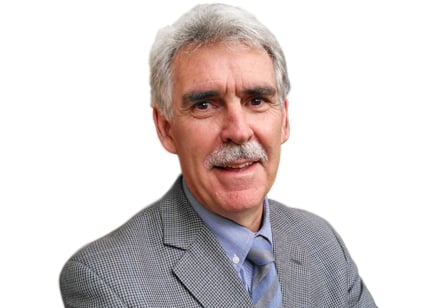A seasoned advisor explains why finding a niche and building client relationships trump a focus on returns

When asked about his plans for retirement, Mark Winson was quick to say that he isn’t ready to hang up his hat.
“This is a business where you can bring on junior colleagues and support staff and structure your day so that you effectively end up working just three days a week,” said Oakville, Ontario-based veteran Winson to Wealth Professional. “But I’m not there yet!” And, as a self-confessed workaholic, he likely never will be.
Still, he has no regrets. Aside from being a financial planner, partner and executive vice president at Wise Riddell Financial Group, he is also an IIROC registered investment advisor with Aligned Capital Partners Inc.
It’s probably just as well, as his remarkable pace of gathering assets under management has landed him in Wealth Professional’s Top 50 List of Advisors for two years running. But aside from enjoying what he does, he acknowledged that working with a team has significantly contributed to his success.
“For the past 15 years, I’ve been a very conscientious leader working with a team,” he said. “Certainly, the level of growth in my assets has been substantially greater over that time than it was in the first 15 years of my career.”
The beauty of working with a team, he maintained, is that it lets him avoid the liability of pretending to be a jack-of-all-trades, which can only lead to mistakes that make advisors disappointed in themselves or disappoint their clients. That’s why he urges younger advisors to associate themselves with people who have complementary skillsets to themselves.
And while working for oneself has its advantages, he admits that many greenhorns could benefit from the training available at the bank level, and then decide whether they want to switch from there. Additionally, he advises them to find one niche to specialize in: “By getting to know a certain type of individual or client and becoming familiar with all aspects affecting their financial and professional lives”, he said, “advisors can do well for themselves.
“We’re focused on the physician market, and there’s been a couple of books written about how physicians should manage their financial affairs,” he said. “And a lot of individuals belong to associations with public information about the plans they use, their business concerns, and so on. A little bit of research can go a long way.”
That education, along with client relationship-building and solid know-your-client processes, provides the building blocks for advisors to create the financial plans that clients need. Once a plan is established, the advisor’s job is to have a continuing conversation about whether they’re on plan, ahead, or behind, and what can be done if they go off-track.
“Most clients will have an idea of when they would like to retire and level of income that they need,” Winson said. “In the digital age, you can certainly have a lot of noise from investment fads and other distractions that get in the way of good decisions, and we do our best to tune that out.”
He also believes in the power of face-to-face reviews, which Wise Riddell’s service agreement says should happen at least twice a year and last from one to two hours.
In general, a firm that’s so invested in its clients’ interests would have no problem with policies and guidelines imposed by regulators. It’s all because of a basic but crucial philosophy: “We need to focus on the fundamentals of ‘know your client,’ know the products you recommend and take responsibility for your recommendations.”
Regardless of regulations, Winson firmly believes that advisors owe it to their clients to know and understand them on a personal level as the advisor is the one with the greatest influence in guiding people’s financial choices. And while positive portfolio performance can go a long way, he knows that it’s not the deciding factor in the client relationship and successful outcomes.



